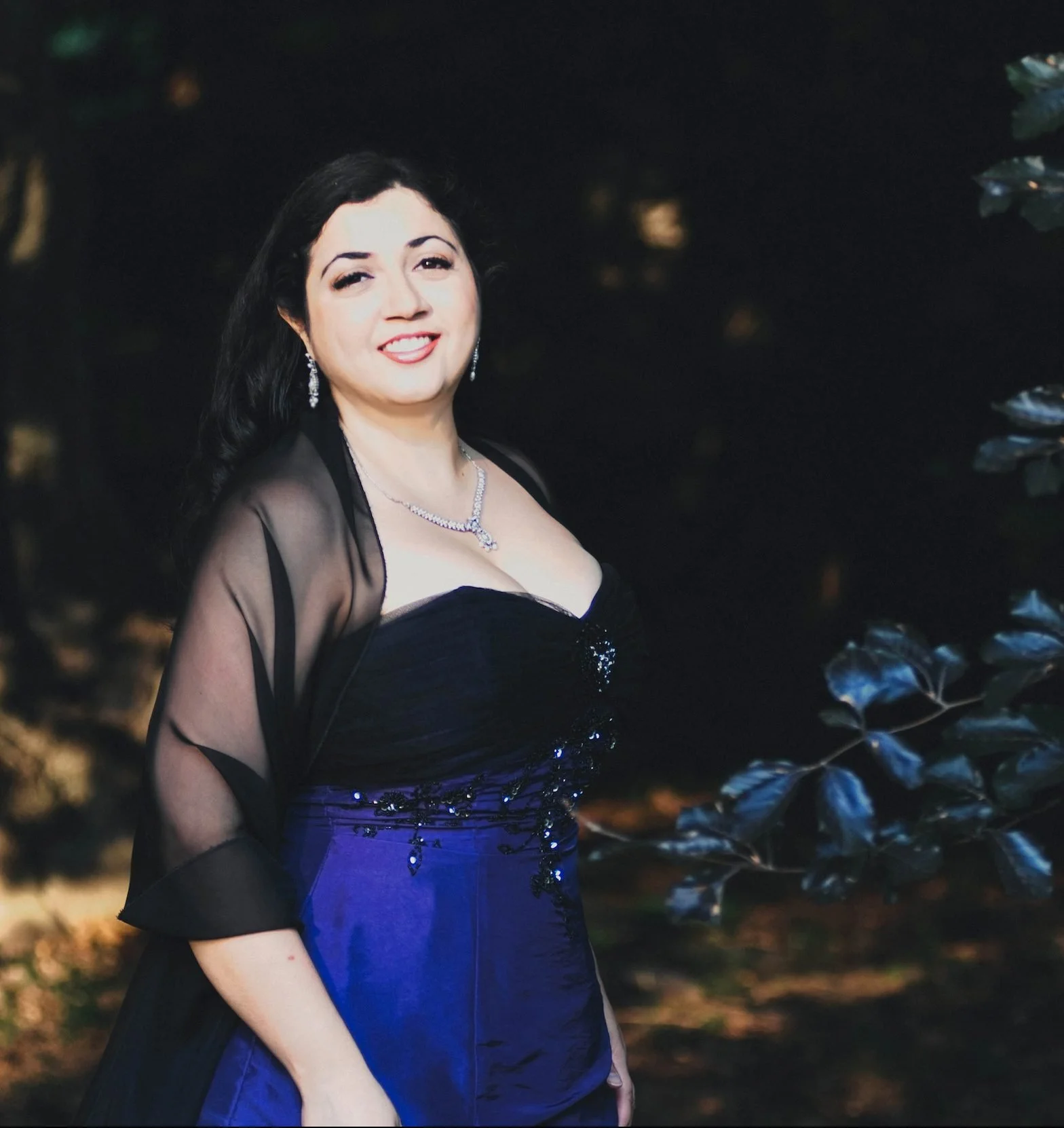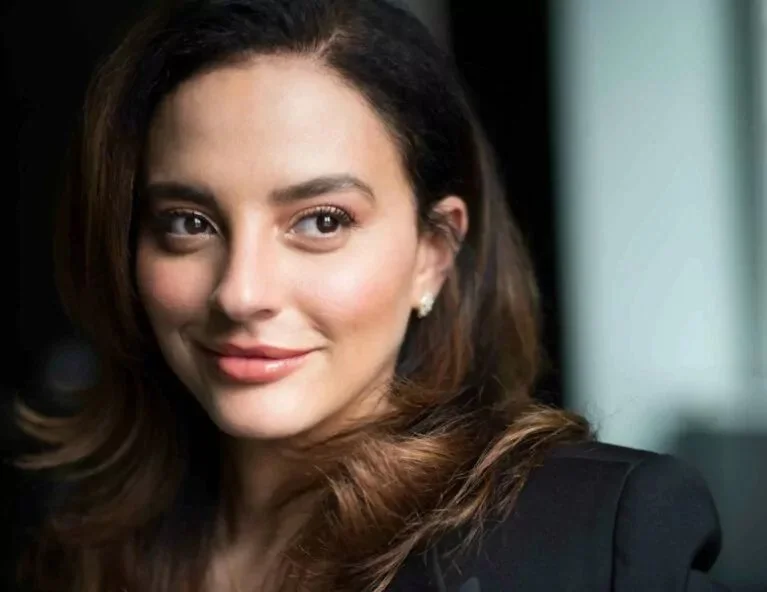Handel's Messiah continues to delight renowned soprano Sherezade Panthaki
Vancouver audiences have two chances to catch the epic work from 1742 this season
Sherezade Panthaki. Photo by David Fung
The Messiah takes place December 7 at 7:30 pm at Kay Meek Arts Centre in a Kay Meek Special Presentation and Early Music Vancouver production; and December 8 at 7:30 pm at the Orpheum, an Early Music Vancouver production in collaboration with Vancouver Chamber Choir
HANDEL’S MESSIAH IS among the most popular pieces of music in the world, one that gets performed around the globe at Christmastime—even though it premiered, in Dublin in 1742, at Easter. It’s said that the composer wept while he was composing the now-famous “Hallelujah Chorus”. Soprano Sherezade Panthaki can relate.
Born in Mumbai, raised in the neighbouring city of Pune, and now based in New Haven, Connecticut, the acclaimed singer has performed the work around 225 times. Even then, it never gets old.
“As many times as I've sung it, I always find something that is new and delightful to my ears,” Panthaki says in an interview with Stir. “It might be a particularly delicious viola line that I never noticed before, or a yet-unheard stylish ornament from a fellow soloist, or something wonderfully different about the pacing of movements by a conductor who is new to me. I particularly love that Handel’s Messiah brings together folks in the audience that have grown up singing these choruses and solos for years—perhaps through their community choirs or church choirs—but that it is no less stunning to someone hearing the piece for the first time. Nothing compares to experiencing the piece live and feeling the electric energy of thousands of people listening to the ‘Hallelujah Chorus’ at once.”
Local audiences will have the chance to relish in the glory of Handel’s 1741 masterpiece in two upcoming performances (see details at top). The ambitious rendition features the Vancouver Chamber Choir under the direction of Kari Turunen as well as the Pacific Baroque Orchestra, conducted by Alexander Weimann, along with Panthaki, alto Allyson McHardy, tenor Nicholas Scott, and bass Jonathon Adams.
Music has always been part of Panthaki’s life, the artist having grown up in a house filled with everything from Hindi film songs to Western classical music to ABBA. She started piano lessons at age four and switched her focus to singing around age 15. Colleges in India didn’t offer conservatory level musical training at the time, so she headed to the United States to pursue her undergrad degree in music at West Virginia Wesleyan College and graduate degrees at the University of Illinois at Urbana-Champaign and the Yale University School of Music. She has performed with some of the world’s leading orchestras, including the New York Philharmonic, Bach Collegium Japan, the Boston Early Music Festival, and Tafelmusik Baroque Orchestra. Panthaki is a founding member and artistic advisor of the newly formed Kaleidoscope Vocal Ensemble, an octet celebrating racial and ethnic diversity in performances and educational programs of early and new music, and she also heads the vocal program at Mount Holyoke College.
“I love the energy and adrenaline of a live performance, and I’m so fortunate to be able to sing a lot of Baroque music, which is nearest and dearest to my heart,” Panthaki says. “One of the reasons I moved from being a pianist to being a singer is my love of languages and the expressivity of text. I love watching audiences be swept away by the drama and be suspended for a moment in time in the music.”
Performing Handel’s Messiah not only delights Panthaki but also continues to push her artistically.
“The soprano soloist gets to sing some of the most virtuosic and beautiful music in Handel’s Messiah,” Panthaki says. “As the work moves through different scenes, the arias are quite different from one another, and it almost feels like one has to be three different singers in one body: a dramatic lyric soprano, a coloratura soprano, and a soprano who enjoys the challenge of early music ornamentation.
“It weaves together a rich tapestry of scenes, first of the Nativity, then the Passion story, and finally the Resurrection,” she adds. “It speaks to audiences and musicians alike on a musical, dramatic, and spiritual level.”
Conductor Alexander Weimann, who also plays harpsichord, has said that even after having led and performed the piece hundreds of times, he still finds himself in awe of the work. It differs from other oratorios and music theatre forms of its time, he says.
“The Messiah feels somewhat episodic, without a real plot to speak of, almost bypassing the contemporary rules of what a piece of music should be built and behave like,” Weimann says in an interview with Stir. “If one saw it only on paper, one might even doubt that it actually works as a show. However, the real surprise is to discover, in a live performance, how incredibly well one locks into the other during the entire duration, and what incredible power and originality it holds, both to perfect formal balance and ultimate personal expression.
“The Messiah story unfolds along the lines of each human life, told in three chapters: Expectation and birth; life and suffering; and death and remembrance,” Weimann adds. “I don’t think Handel meant to tell a story that could only be understood as sacred, let alone exclusive to a certain faith or denomination. It feels like a story for everyone, about the miraculous beauty of life and how we all are experiencing it.”
Alexander Weimann. Photo by Mark Mushet
In light of the work’s scope, it never feels long, as far as Weimann is concerned. That’s saying something given his mighty dual task of conducting and playing the harpsichord.
“As a conductor, one is taken on a journey from one emotional extreme to the polar opposite, from grand forces to super intimate, some of that happens very densely, some is given more time to sink in, and as every performance wraps up in the final 'Amen', I feel just so grateful to Handel for his impeccable sense of proportion and theatrical timing,” Weimann says. “The main challenge for me in performing this piece is that I usually function as conductor and harpsichordist—that means in some movements, I am only conducting with my hands and arms in the air, and in some I'll be playing and still somehow conducting—and the switch between those two targets is in fact not easy. Other than that, I love the presence of vocal soloists, the choir, and the orchestra, all the possibilities to use text and music, meaning and mood, the immense range of dynamics, colours, and textures.”
There’s another reason to catch this year’s performances of the masterpiece, Panthaki reminds.














